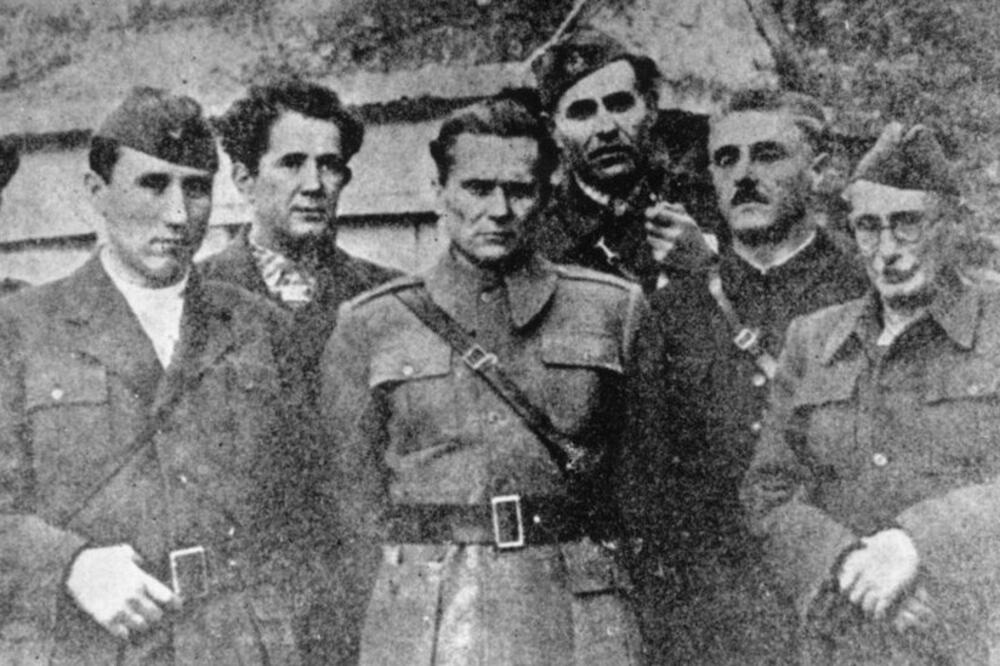In March 1943, the Yugoslav partisans found themselves in the Neretva valley, in Bosnia and Herzegovina, surrounded by enemies and exhausted from months of continuous fighting, with the Central Hospital full of wounded and typhus patients.
Supreme Commander Josip Broz Tito, in such an almost hopeless situation, makes one of the most difficult and controversial decisions - to send three trusted comrades-in-arms to negotiate with the Germans.
"I was surprised by that task and the received directives. However, I understood this decision of the Supreme Staff as a war ruse that was supposed to free us from German pressure that threatened to make it impossible for us to transfer our wounded to the left bank of the Neretva," said Vladimir Vlatko Velebit at the time about the March negotiations.
In addition to him, Milovan Đilas and Koča Popović were sent to the Bosnian Gornji Vakuf on March 11, at the beginning of negotiations.
- The First Proletarian Brigade - from national heroes to a faded memory
- Five things you should know about Tito
- Battle of the Neretva: The film that brought Hollywood to SFRY
"The intention to continue the exchange of prisoners, which began in August last year, was cited as the nominal reason," historian Gaj Trifković, author of the book, told the BBC in Serbian. Negotiations with the devil: exchange of prisoners in Yugoslavia 1941-1945 (Parleying with the Devil: Prisoner Exchange in Yugoslavia, 1941‒1945).
Among other things, the goals were to "achieve an immediate ceasefire" in order to enable the majority of the People's Liberation Army of Yugoslavia (NOVJ) and the Central Hospital to "cross over the Neretva, deal with the Chetniks and penetrate towards Montenegro, without fear of persecution".
The outcome of the negotiations was a short-term ceasefire and shooting of captured NOVJ members, as well as the release of 17 partisans.
They lasted almost until the end of April, and most of the meetings were held in Sarajevo and Zagreb.
What preceded them?
The negotiations were conducted during the military operation of the Axis powers - Weiss, better known as the Fourth Enemy Offensive, during which the Battle of the Neretva was fought.
This German-Italian offensive consisted of two phases.
According to historian Gajo Trifković, it represented "the most serious attempt to destroy the main part of the People's Liberation Army of Yugoslavia with one blow and thereby secure the Adriatic hinterland in the event of an Allied landing".
The beginning of the operation, at the end of January 1943, was marked by the enemy's conquest of the Republic of Bihać - territory under the administration of the Partisans, which spread over the territory of western Bosnia and parts of Dalmatia, Lika, Kordun and Banija.
Partisans were thus forced to move towards the middle course of the Neretva.
"Breaking out on the Neretva, the partisans liquidate all the Italian garrisons from Mostar to Konjic, but they fail to capture Konjic.
"This is a serious problem, because the only good road to eastern Herzegovina passes through there, the next goal of the Main Operational Group of the People's Liberation Army of Yugoslavia (NOVJ) and the Central Hospital," says Gaj Trifković, a historian from Sarajevo.
At that time, there were about 4.000 wounded and sick in the Central Hospital, of which 800 were on stretchers, and 1.500 had to be transported on horses.
- "The man who protested when no one protested": Milovan Đilas - the story of the first and forgotten dissident
- Aleksandar Ranković - from the second man of the state to the number one enemy of the state
- Peko Dapčević - the legendary commander who made it to folk songs
After the failed breakthrough at Konjic and the news that there were Chetniks on the left bank of the Neretva, Tito made a "hasty decision to demolish the bridges" in order to secure himself from a possible threat.
Although it was later portrayed as a tactical move aimed at deceiving the enemy, the destruction of the bridges puts the army in a critical situation.
"For now, the already completely closed 'cauldron' is being invaded from the north and northwest by the Germans and the armed forces of the Independent State of Croatia (NDH), while the Chetniks and Italians are coming from the east and south," adds Trifković.
In this seemingly unsolvable situation, Josip Broz Tito ordered a counterattack near Gornji Vakuf, with which he wanted to open the circle in which they found themselves.
Then Major Artur Streker was captured, who thus became an "ace up his sleeve" in the negotiations that would follow.
However, even this move was not enough to get out of this predicament, so Tito decided to "use diplomacy".
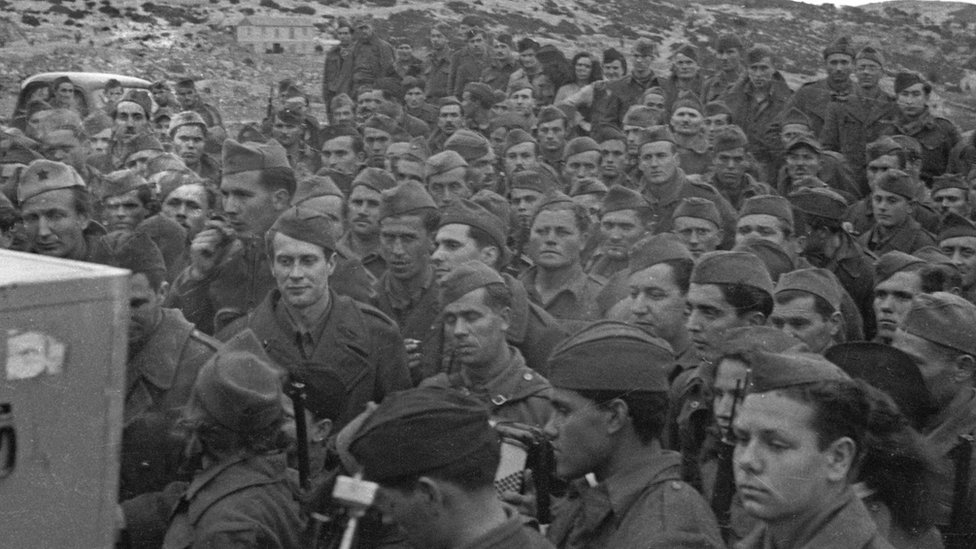
From Gornji Vakuf to Sarajevo and Zagreb
Negotiations with the Germans began in Gornji Vakuf on March 11, 1943.
Vladimir Vlatko Velebit, as a good negotiator, Milovan Đilas - member of the Supreme Staff and Central Committee of the KPJ and Koča Popović, commander of the First Proletarian Division, were sent to the negotiating mission.
Đilas, that is, Miloš Marković as his pseudonym was, was initially the head of the delegation and led the negotiations, Trifković says, "in accordance with the 'line' that Tito presented orally".
However, he was soon replaced as the first negotiator by Velebit, for the purposes of negotiations, Vladimir Petrović, who, in addition to his good knowledge of the German language, also possessed a talent for diplomacy.
The negotiations were originally announced to be held in Bugojno, however, the three-member delegation with a white flag at the beginning of the column was met by the Germans in the Bosnian town of Prozor, from where they were taken to Gornji Vakuf, where they submitted their demands.
Koča Popović immediately returned to his positions, while Đilas and Velebit went by car to Sarajevo, where the talks continued on March 15.
In the corridor of the German command building in Sarajevo, where the meeting took place, Đilas noticed a deserter from the First Proletarian Brigade who had joined the Germans.
Because of his hidden identity, he was afraid of revealing it, but as he later wrote, "either he didn't recognize it, or he didn't want to give it away".
- Milovan Đilas: "a Montenegrin, a Serb and a Yugoslav whose significance far exceeds the Yugoslav borders"
- How many people's heroes we remember today
- What is celebrated on July 7 and why it was a national holiday
Velebit had similar experiences, and two days later he went to continue negotiations in Zagreb, the place from where he joined the Partisans and where his family lived.
"When I entered a pharmacy to buy a toothbrush, the cashier recognized me and exclaimed in amazement: 'Are you here, doctor, I heard that you are in the partisans,'" wrote Velebit, according to the book March negotiations in 1943, by Miša Leković.
The German plenipotentiary general in the NDH - Gleiz von Horstenau, whom he met there, told him that he knew that he was a "Zagreb lawyer, the son of General Ljubomir Velebit", but they still allowed him to visit his parents' house.
"What made the Germans take such a correct attitude towards me - it's hard to explain.
"I believe that General Glaze, as an Austrian, acted in this way out of a sense of camaraderie towards my late father.
"They were both officers in the Austro-Hungarian army, in which there was a highly developed caste sense of connection among the officers' corps," wrote Velebit.
He also held talks with Italian representatives, with whom he also talked about the exchange of prisoners.
After the return of Velebit to Sarajevo, the partisans took the first step in freeing the prisoners by releasing about twenty German soldiers, among whom was Major Streker.
A few days later - on March 20 or 21, Đilas and Velebit return to Zagreb again, for "main negotiations".
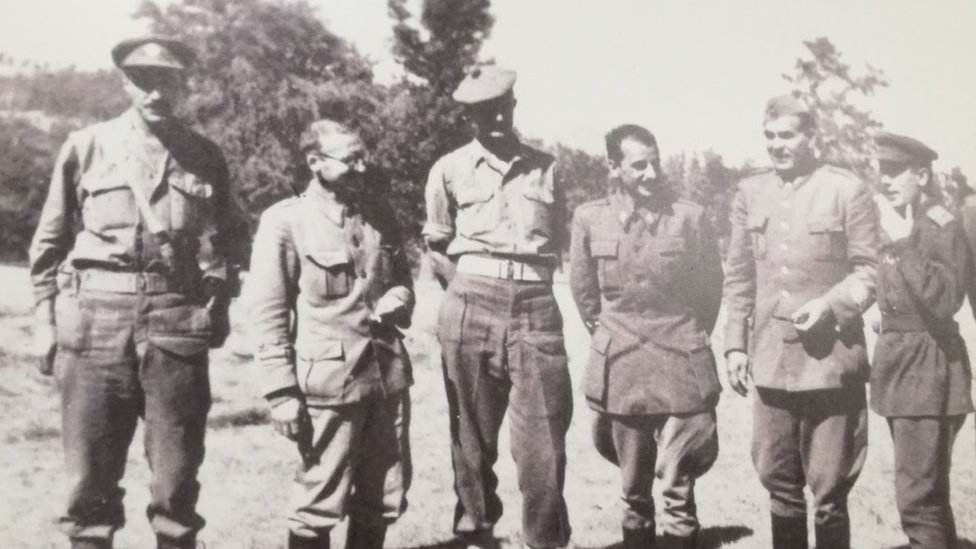
"Main negotiations", then the end
On the train to Zagreb, Marković and Petrović, as their pseudonyms were, spoke with engineer Hans Ot, who had already participated in earlier negotiations on the exchange of prisoners in Livno in November 1942.
"They spoke to him 'quite openly', expressing the belief that Germany would lose the war.
"They got the impression that their interlocutor was of the same opinion, although he did not say so directly - which was understandable," the book says. March negotiations in 1943.
It was then made known to the German engineer that Herta Haas should be among the prisoners for exchange, without stating that it was Tito's wife.
Two meetings were held in Zagreb, and a colonel was at the head of the German negotiating team, which, according to Đilas, diminished the importance of the negotiations.
"He correctly concluded that there were no negotiations, in the true sense of the word, because the opposite side never formed an official, accredited delegation."
"Everything came down to conversations, which the Germans deliberately organized and conducted in as informal an atmosphere as possible," says historian Trifković.
- The rise and fall of the Užice Republic
- The Second World War, anti-fascism and revisionism: "Sutjeska has been published many times today"
- Bela cáo - a story about a song whose (only) chorus we all know
Đilas wrote that during the conversation they did not point out "Ustasha as 'main enemies'" because the Germans "considered them their own", but that they said that they, as well as the Chetniks, "claimed them as internal enemies".
Then, as in the talks in Gornji Vakuf, they indicated that "they will not allow the landing of Allied troops in Yugoslavia".
"The Germans had to be encouraged, 'softened', hence the statements by Đilas and others that the Chetniks were their main enemies, and that any attempt by the British to land in Yugoslavia would be equivalent to declaring war on the NOP," says Trifković.
He adds that "in the long term, the monarchists were the main obstacle to the creation of a new Yugoslavia", while there was "strong antagonism" towards Great Britain, "as the main imperialist power of the world".
"In the official narrative, on the other hand, the Third Reich was designated as the main enemy, which was also undeniably true, but primarily in the context of the liberation of the country."
The second round of negotiations in Zagreb led to the release of twelve communists, but not Tito's wife Herta Haas.
Velebit came to pick her up in April, during her third trip to Zagreb.
He then had the task of informing the partisans in Slavonia "to prepare German prisoners for exchange, if they have them, and to stop actions against their units".
The end of the negotiations finally came on April 23, when Velebi and Has returned to Partisan territory.
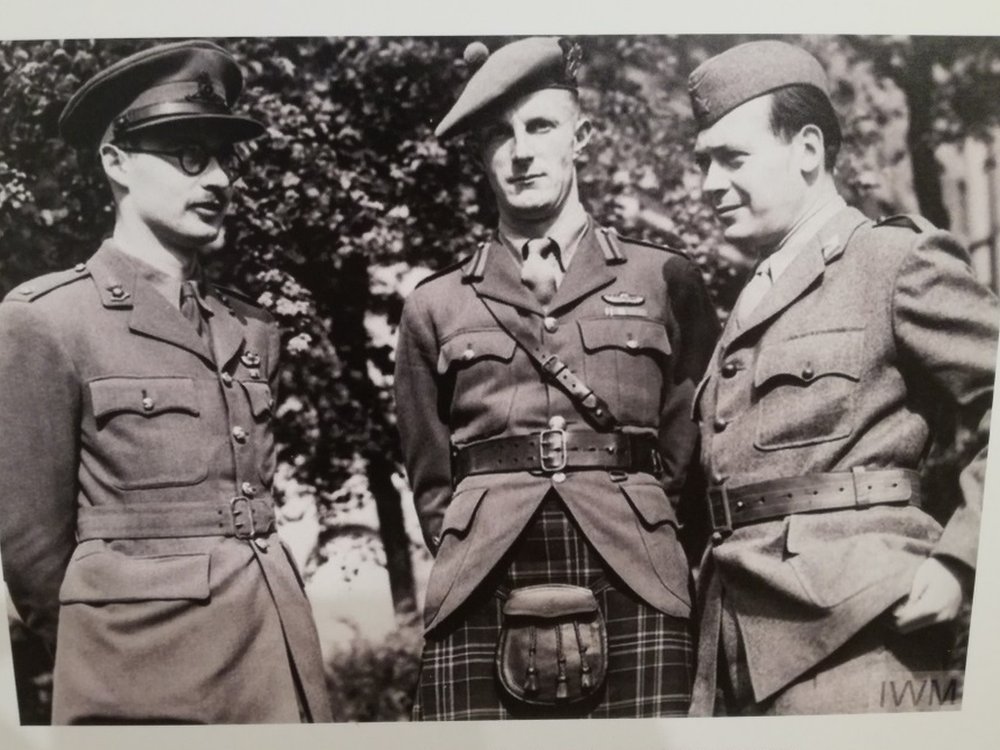
Requirements
Historian Trifković says that during the March negotiations, in addition to the exchange of prisoners, "emphasis was placed" on the fact that Germany "recognizes the NOVJ as a belligerent".
Partisans would thus "enjoy all the rights and obligations" like the soldiers of other countries, except the Soviet Union, with which the Third Reich was at war, and the People's Liberation Movement (NOP) would emerge from "international isolation".
"They would be guaranteed life, dignity, housing and food, and everything prescribed by the Geneva Convention," says Trifković.
With this recognition, the wounded of the Central Hospital would also be spared in case of capture "which was the main concern of the Supreme Staff".
Nevertheless, Germany will never formally recognize the NOVJ as a belligerent party, not even in 1945, when all the conditions were in place, explains Trifković.
The historian also says that Tito offered a truce and retreat to the "Italian occupation zone - Sandžak", where the NOVJ would no longer represent a "danger to German interests".
"All this was supposed to somehow induce the Germans to stop the pursuit and thus enable the NOVJ to 'unstick' in the direction of Eastern Herzegovina and Montenegro."
Partisans also stopped attacks on the Belgrade-Zagreb railroad until mid-May, which was one of the German conditions for the exchange of prisoners.
Even official Moscow, to which the KPJ leadership was accountable, did not approve of these moves.
In one telegram that the Comintern sent to Tito, it was written, among other things, that they were "confused by the circumstances of the exchange of prisoners of war with the Germans" and that they were "asking for an explanation on this matter".
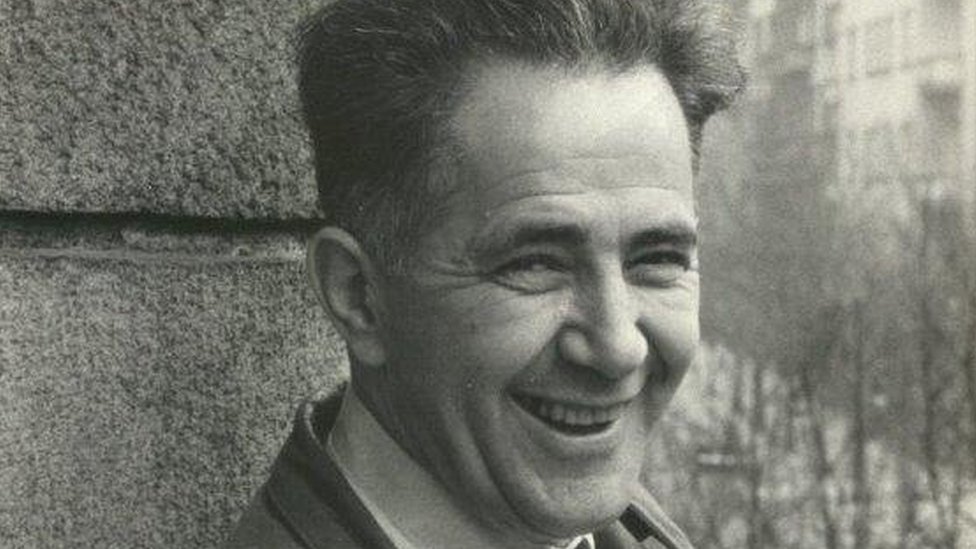
What did the partisans get from the negotiations?
The results of the negotiations were modest for the Yugoslav side.
Trifković says that 17 partisans were exchanged for 27 German soldiers.
"German units were ordered to temporarily stop shooting prisoners, which was a common practice until then, and one German attack south of Konjic was postponed for a day until the exchange took place," adds the historian.
However, all this was short-lived, and the truce, in fact, did not even happen.
"The majority of German military leaders in occupied Yugoslavia, as well as their superiors in Berlin, did not believe in the sincerity of Tito's offer on demarcation.
"Also, they did not want to recognize the NOP as a warring party, so this was reflected in the way they communicated with the partisan representatives," says Trifković.
He also states that Adolf Hitler also resented this issue with the comment "that bandits are not talked to, but are shot".
- How Stalin, Roosevelt and Churchill reshaped the world at Yalta
- It's not a conspiracy theory: Tito, Hitler and Stalin were neighbors
- Tito's atomic bomb: political desire against science
That's how it was, because the Nazis had already launched Operation Schwartz, i.e. the Fifth Enemy Offensive, in the middle of May, within which the famous Battle of Sutjeska took place.
In this way, Tito's delusion that the March negotiations achieved the "neutralization" of the Germans and that they would not "pursue them towards eastern Herzegovina" was destroyed.
"The Germans did stop at the Neretva, but not because of the March negotiations, but because of the strained relations with the Italians, the great fatigue of the troops, and other strategic priorities, for example - the protection of the Mostar bauxite zone," explains Trifković.
Nevertheless, some Nazis who found themselves in Yugoslav captivity after the war and the victory of the partisans tried to use the involvement in the March negotiations as a mitigating circumstance.
So, says Trifković, the German deputy in Zagreb - Zifrid Kaše invited Koča Popović and Vladimir Velebit as witnesses at the trial, which was not approved.
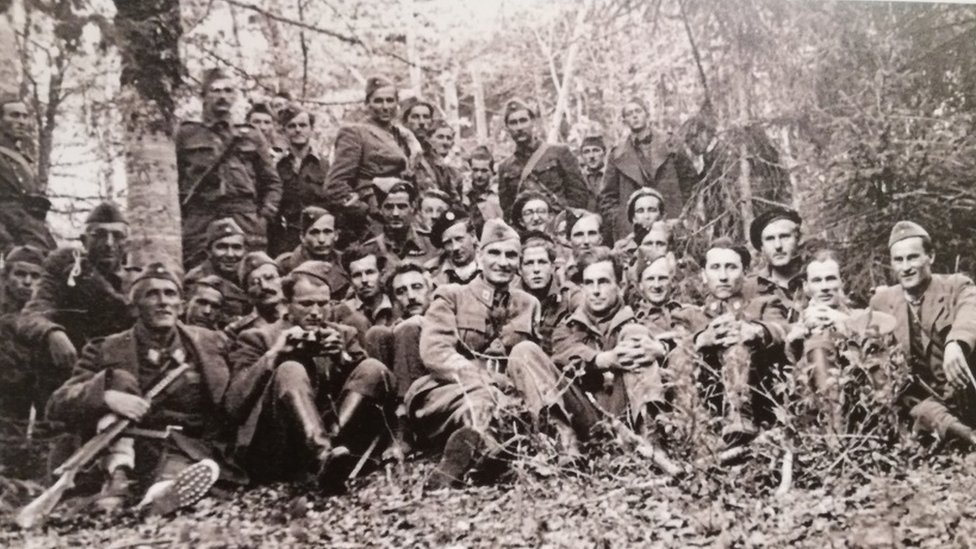
March negotiations in socialist Yugoslavia and today
The March prefaces were not much talked about after the Second World War in Yugoslavia.
Triković says that until Tito's "public confession" at the rally in Jablanica, Bosnia in 1978, they were probably only "whispered in narrow circles".
"This kind of diplomacy has no place in any glorified narrative of war, including in the saga of the People's Liberation War and revolution.
"The March negotiations were an expression of weakness, forced by the difficult situation on the battlefield," says Trikfović.
He adds that all these things "could not be printed in the context of the Neretva and Sutjeska epic", so the monograph by Miš Leković - March negotiations in 1943, waited until 1985.
"One of the reasons behind this delay is certainly Tito's death.
"They wanted to avoid at all costs anything that could harm his reputation," says the historian.
Trifković believes that the March negotiations are disputed today only by "the authors of the right-wing political spectrum, mostly in Serbia".
"According to them, a truce was reached, and the Wehrmacht stopped at the Neretva, which enabled Tito to defeat the Chetniks in Eastern Herzegovina, to the satisfaction and benefit of all negotiating partners.
"The problem with such claims is that there is no material evidence for them," concludes Trifković.
Follow us on Facebook i Twitter. If you have a topic proposal for us, contact us at bbcnasrpskom@bbc.co.uk
Bonus video:



